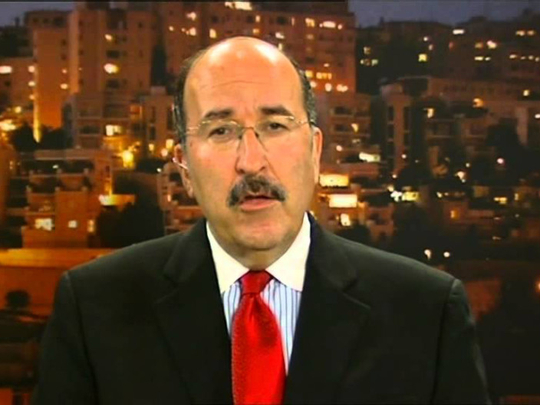
A new image of US President Barack Obama that will undoubtedly shock many in the Arab world and Israel has emerged in a lengthy interview with the Atlantic’s Jeffrey Goldberg, who has interviewed Obama more than once.
The interview, which was published in full, dealt with three hot issues in the Middle East: The anticipated pact with Iran on its alleged nuclear programme, Saudi Arabia’s nuclear temptations and Israel’s conduct in the Middle East and elsewhere. This one-hour exchange between Goldberg and Obama has turned many tables upside down. “We spent the bulk of our time,” Goldberg wrote, “talking about a country (Israel) whose future preoccupies him almost as much it preoccupies me.”
He added: “In the wake of what seemed to have been a near-meltdown in the relationship between the US and Israel, Obama talked about what he called his love for the Jewish state; his frustrations with it when it fails to live up to both Jewish and universal values; and his hope that one day soon, its leaders, including especially its prime minister [Benjamin Netanyahu], will come to understand Israel’s stark choices as he understands Israel’s stark choice.”
His warning to Israel, related Goldberg, was “If [Israel] proves unwilling to live up to its values — in this case, he made specific mention of Netanyahu’s seemingly flawed understanding of the role Israel’s Arab citizens [Palestinians of the 1948 areas] play in its democratic order — the consequences could be profound”.
Obama’s point was “when Netanyahu asserted, late in his recent re-election campaign, that a Palestinian state would not happen under his watch, or [when] there [was] discussion in which it appeared that Arab-Israeli citizens [Palestinians of the 1948 areas] were somehow portrayed as an invading force that might vote, that this should be guarded against — this is contrary to the very language of the Israeli Declaration of Independence, which explicitly states that all people regardless of race or religion are full participants in the democracy. When something like that happens, that has foreign-policy consequences, and precisely because we’re so close to Israel, for us to simply stand there and say nothing would have meant that this office, the Oval Office, lost credibility when it came to speaking out on these issues”.
In other words, explained Goldberg, Obama’s goal was “to reassure Jews of his love for Israel” and that “he was adamant that he would not allow the Jewish right, and the Republican Party, to automatically define criticism of the Netanyahu government’s policies as anti-Israel or anti-Semitic”.
As the American president was trying to endear himself to Israel and its right-wing leadership, Netanyahu surprisingly appointed what the New York Times identified as a “hawkish ally” to run Israel’s foreign ministry. He is none other than Dore Gold, thus “the latest in a series of moves that consolidate Mr Netanyahu’s conservative grip on his new government”. The paper’s occupied Jerusalem bureau chief Jodi Rudoren underlined that Gore has been “a ubiquitous promoter of Mr Netanyahu’s policies on international television, who has warned against concessions to the Palestinians, given the raging chaos in the Middle East”.
Gore’s research group, the Jerusalem Center for Public Affairs, she continued, “staunchly opposes Israeli withdrawal from the occupied West Bank or any division of [occupied] Jerusalem, which the Palestinians plan as the capital of their future state”.
This slap in the face to Obama came a few days after the Atlantic’s interview with the American president was published and in which he noted that “there has been a very concerted effort on the part of some political forces to equate being pro-Israel, and hence being supportive of the Jewish people, with a rubber stamp on a particular set of policies coming out of the Israeli government. So if you are questioning [illegal Israeli] settlement [colony] policy [in the occupied West Bank] that indicates you’re anti-Israeli, or that indicates you’re anti-Jewish”.
He explained: “If you express compassion or empathy towards Palestinians youth, who are dealing with checkpoints or restrictions on their ability to travel, then you are suspect in terms of your support of Israel. If you are willing to get into public disagreements with the Israeli government, then the notion is that you are being anti-Israel, and by extension, anti-Jewish. I completely reject that.”
It is probably time for Obama to be interviewed by an Arab American journalist or an Arab correspondent from the Middle East to get the other side of the story.
George S. Hishmeh is a Washington-based columnist. He can be contacted at ghishmeh@gulfnews.com










